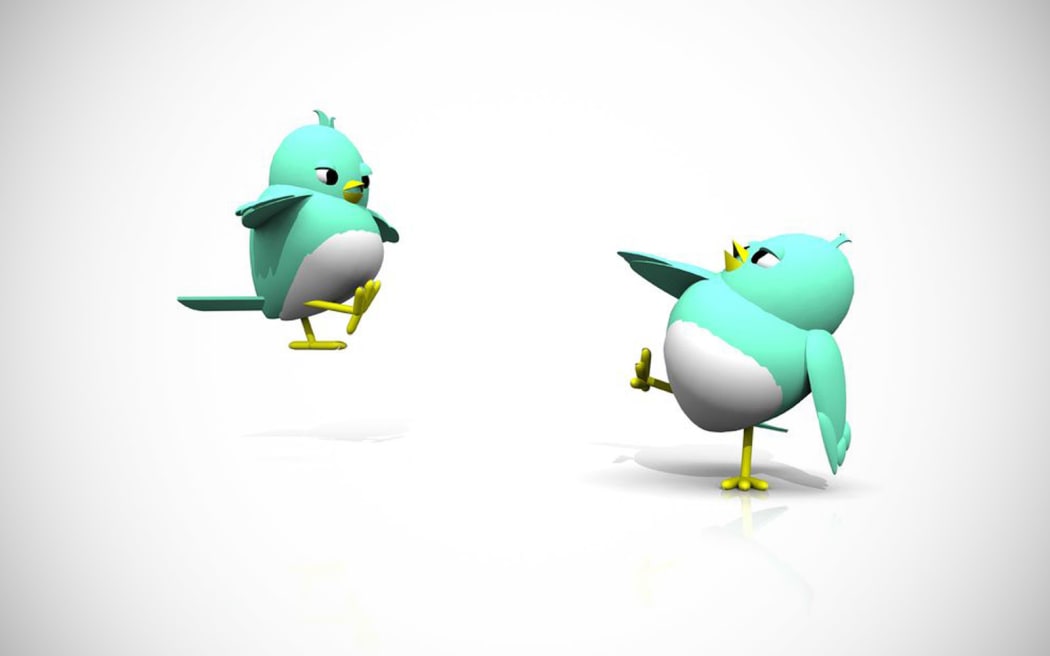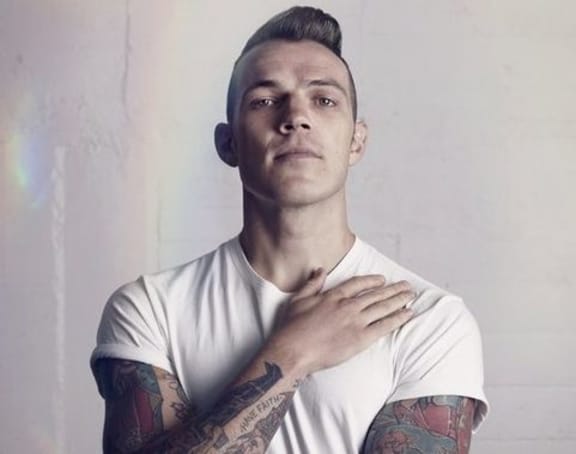ANALYSIS: Twitter is loved by celebrities, journalists, politicians and activists, but it's also prone to acrimony and dissension. Megan Whelan looks at the social network's stoushes, that happen with alarming regularity, and asks if there's any way to stop them.

Twitter fight Photo: 123RF
Last month, English comedian, actor and writer Stephen Fry quit Twitter, posting that the "fun is over." Fry had faced criticism - on Twitter and elsewhere - for a comment likening costume designer Jenny Beavan to a "bag lady".
Fry called Twitter a "stalking ground for the sanctimoniously self-righteous who love to second-guess, to leap to conclusions and be offended - worse, to be offended on behalf of others they do not even know".

Stephen Fry Photo: AFP
It's not the first time Fry has left the social network, nor is he the first person to do so. The company has been under pressure to do something about the harassment of people - particularly women - experience on its platform. And as it struggles to grow, there are also questions over the bullying and shaming the platform has become famous for.
New Zealand's Twitter community is somewhat small - around 370,000 users - or 7 per cent of the population - but not all of those are active or frequent. That doesn't mean it's any less contentious.
Back in January, blogger and community manager Madeleine de Young tweeted about an article in the New Zealand Herald. The conversation around the story quickly became heated and, amidst it all, the article's author announced she was leaving Twitter.
She explained her departure like this:
Btw I didn’t feel “hounded”. I’m bored of argument which creates nothing meaningful. I’m going to focus on reporting, which does.
— Kirsty Johnston (@kirsty_johnston) January 10, 2016
Recalling the stoush, Ms de Young says, "The next thing you know, she's left Twitter, and everyone's going crazy." de Young was accused of leading a "pile on" - where multiple people question, attack, or mock one person or group of people. At the same time, she was on the receiving end of abuse herself.
She says while her tweets were triggered by the article, they weren't abusive or even directed at the journalist, and she was surprised by what happened.
"It felt like we became a proxy for other conversations which had happened in the past."
@buzzandhum @meganjwhelan same for me, when my mum was dying and I was in Mosgiel doing it hard, was really great
— happyhomemaker⚓️ (@angew) March 22, 2016
Bullying behaviour not uncommon
Another person involved in the conversation was sociologist Jarrod Gilbert. To him, seeing a good journalist being hounded off the platform seemed unfair. But, he says, bullying behaviour is not uncommon on Twitter.
"It's like a form of collective behavior, you're seeing how crowds riot. People just springboard off one another and act in ways that they probably wouldn't as individuals."

Jarrod Gilbert Photo: University of Canterbury
Gilbert argues that for the vast majority of people there is no malice in sending a tweet - even when they might be the 40th person to make the same criticism. People genuinely think they're right, he says, and don't appreciate the consequences of their collective actions.
"Lost in all this is an ability to argue with good manners; which is a bit rich coming from me, the guy who called them all c***s.
"Minute detail takes on a life of its own. Something that can be said, even in jest, suddenly is seen as this enormous issue, whereas in reality, it's just a stupid joke, or it's just a moron saying a stupid thing. I think it's important to take a deep breath."
The calming powers of a deep breath are much touted on Twitter - a micropause before sending that 140 character rant. But New Zealand blogger Stephanie Rodgers says, for many of Twitter's users, a joke isn't just a joke.

Stephanie Rodgers Photo: Twitter
"There's so much going on because of the ubiquitous sexism in our society, that people aren't just reacting to one little thing that maybe we should all just ignore... It ends up being about those bigger issues [of sexism, racism, ableism, for example] because those bigger issues are always there. It's almost never just about one particular comment.
"Very frequently, especially on New Zealand Twitter, because we're such a small community, the person who said the silly thing today said the same silly thing a week ago."
@meganjwhelan the amazing wahine of Twitter from whom I learn cc @ColeyTangerina @not_friends @AMidnightVoyage @DearMama_ @Roz_P_
— chasingalyx (@chasingalyx) March 22, 2016
Positive intentions can have a dark side
Community is an important part of Twitter, popping up around interests, politics, or geographic locations. Ask "science Twitter" a question about the weather, and you'll likely get a response from NIWA, the Metservice or an amateur meteorologist.
After the 22 February Christchurch earthquake, Twitter rallied around the hashtag #eqnz, providing support, information, and the occasional bit of black humour.
But community also has its dark side, says writer and novelist Danyl Mclauchlan. People build communities, he says, but when they see someone they consider one of their own being attacked, they feel compelled to pitch in.
Mclauchlan has suspended his Twitter account, but says: "People keep saying 'what's wrong, why is there so much abuse, why can't Twitter fix it?' I kind of think that this is how it's supposed to work. It's by design.
"When you're using Twitter you're doing kind of a strange thing. You're generating content for this multi-billion dollar media company for free, but you're also the product that they're selling."
Dr Gilbert says the platform itself is definitely part of the problem.
"People have strong views about things, but the platform exacerbates an attack mentality. It's anonymous, there's comfort in a group, so it ramps up... you're "almost stoned to death with feathers."
'Awful doesn't begin to describe it'
Another recent controversy revolved around comments by radio host, commentator and boxing trainer Richie Hardcore. On International Women's Day he posted on Instagram about a naked picture Kim Kardashian shared with her followers.
For days, it seemed, Hardcore's comments, and the subsequent discussion, was all people were talking about on the NZ Twitter scene; either openly, or by what's known as "subtweeting." (Where someone makes a statement about a person, without naming or directing it at them.)

Richie Hardcore Photo: Twitter
Hardcore didn't want to be interviewed, but in statement (via Twitter), he said: "I think all I can do is reiterate that what I said was wrong, I regret what happened after that and apologised for everything - I think it'll be very difficult to have a discussion about the limitations of Twitter as a medium without people taking it personally and the risk of reigniting the issue.
"In regards to how it feels, well, awful doesn't begin to describe it. It's incredibly stressful and at times painful. I never knew what a pile on was until finding myself at the bottom of one, and now I can understand how it can lead to people withdrawing from the public sphere for fear of it happening again."
Rebecca, who tweets as @bekathrills, but didn't want to give her surname, was part of that discussion.
Much of the discussion about Twitter shaming argues that the punishment is disproportionate to the crime - hundreds, even thousands of people baying for blood over one tweet, seems outlandish.
But Rebecca says it often comes down to how people handle it. "It's usually pretty civil. It's one, maybe two people saying 'hey, this isn't cool. But it's this immediate bite back.
"If you step back and either apologise immediately, or have a think, it stops that snowball effect.
"Often the people that are complaining about being attacked, or being misrepresented are the people that have the biggest platforms, they're not used to people disagreeing with them. They're not used to people talking back."
@meganjwhelan anytime someone loses a pet- the heartfelt genuine warmth the sadness is met with
— Julie Alp (@cuttingkindling) March 22, 2016
Fairfax senior journalist Philip Matthews has felt the ire of Twitter a couple of times - once when he tweeted a joke many saw as sexist, and then later when he wrote an article about the so-called "Twitterarti."
"Correcting language used online about race, gender or sexual orientation is one way that identity politics plays out, as a form of "clicktivism"", he wrote, "that lets activists think they are making a genuine difference in the world at large."
Mr Matthews says he manages to largely ignore most of the fights now through Twitter's tools of blocking and muting and by "focussing on other things." But the thought of those discussions fills him with dread.
"A Twitter stoush is a classic example of how people can look at the same event through their own lenses or their own biases and see completely different things.
"What feels like an attack to one person, feels like completely polite engagement to another."
Mr Matthews says the kind of "language policing" he wrote about can be genuinely useful, citing a piece by Stephanie Rodgers.
"What I thought was an innocuous joke, to her was one of many many examples of that kind of thing. Not from me, but from the culture. And I thought 'that's a real eye-opener.'"
@meganjwhelan Saddest but best: the night Bowie died.
— Harpy (@dimsie) March 22, 2016
Talking about big issues on a personal level
Often times, there's more that unites Twitter's users than divides them, but there's a perception that some people on the platform go looking for controversy or things to be offended by.
Ms de Young says she doesn't go looking for fights, but she understands the very human - if not emotionally healthy - reaction to drama.
"I wonder if it's because people feel they don't have any power over what's happening in 'real life' that things become a lot more fraught on Twitter," she says.
"Because Twitter is a space where you can talk about big things, on a really personal level. But because you're doing it 140 characters at a time, it's really easy for things to be misconstrued."
Like Mr Matthews, De Young says actively curating the people she engages with on Twitter helps. "Even when I absolutely disagree with someone's politics or opinions, they're people I want around."
That also rings true for comedian Michèle A'Court. She's very clear about what she uses the network for: as a noticeboard and a library.
"Twitter is also a party. There are a whole lot of rooms at the party, and if I find myself in a conversation, or overhearing a conversation that I would not stay in the room for in the real world, I leave that room."
Of the most recent fight, A'Court says she'd like to get all the people involved into a room "and say 'look at each other while you are talking; you like each other.'"
@meganjwhelan when my sister died and every one was there with me, when my daughter was unaccounted for during #eqnz, when babies born
— Grow From Here Kaye (@GrowFromHereNZ) March 22, 2016
Who's got the loudest voice?
A lot of the fights happening on Twitter now - and on the internet generally - seem to be less about ideologies or politics, but about who gets to have the loudest voice.
Jarrod Gilbert says the way Twitter has given voice to people who have previously had none is a beautiful thing, but it can have some perverse outcomes.
"Most often people we hear from publicly have got a reason to be heard publicly - because they're very informed on an issue or they're very talented. Whereas Twitter is an equaliser, which is beautifully democratic, but it does mean there can be some loud voices with the minds of mice."
"The power of that voice will be lost, if people get turned off by the medium. It might just end up eating itself."
Danyl Mclauchlan points out that for all its talk of diversity and safety, the company behind Twitter has a financial interest in the conflict - the more conflict, the more engagement it gets, and therefore the more advertising it can sell.
@markcubey @meganjwhelan I'll tell my grandchildren about the time I got RTed by Ron Wood from the Rolling Stones.
— Philip Matthews (@secondzeit) March 22, 2016
But he believes better behaviour can happen.
"I was on Twitter engaging with the analyst that did the work on the Labour Party's controversial Chinese housing data, and then Asian New Zealanders came in and did their thing, and I thought 'you know what? If they've got this, I don't need to be involved in this anymore.
"That was a rare moment of maturity for me that I realised I didn't have to be involved. I feel like it would be a nicer place if more people came to that realisation."
Like A'Court, Mr Matthews turns to real life. "I think people have to engage reasonably, and think about what they say, and whether they'd say it if the person were sitting across from them."
As well as taking time to reply and listening more, Stephanie Rodgers asks for a technological solution. "Why not a button that tells you how many replies a tweet has had, along with retweets and likes?"
"And then you can tell for yourself if they've already heard what it is you're going to say."
That wisdom may be more than technology can provide.

